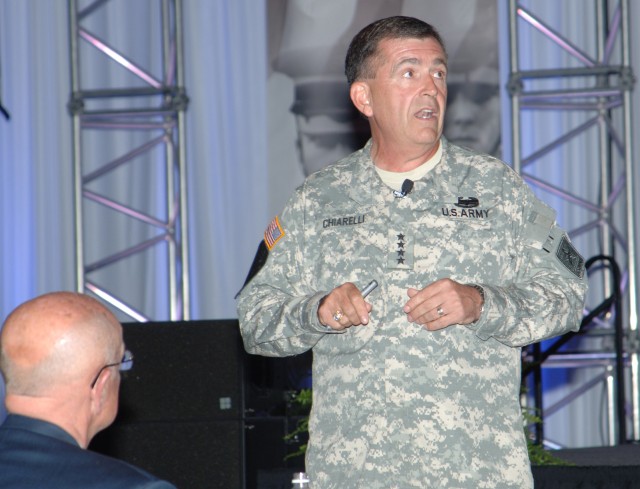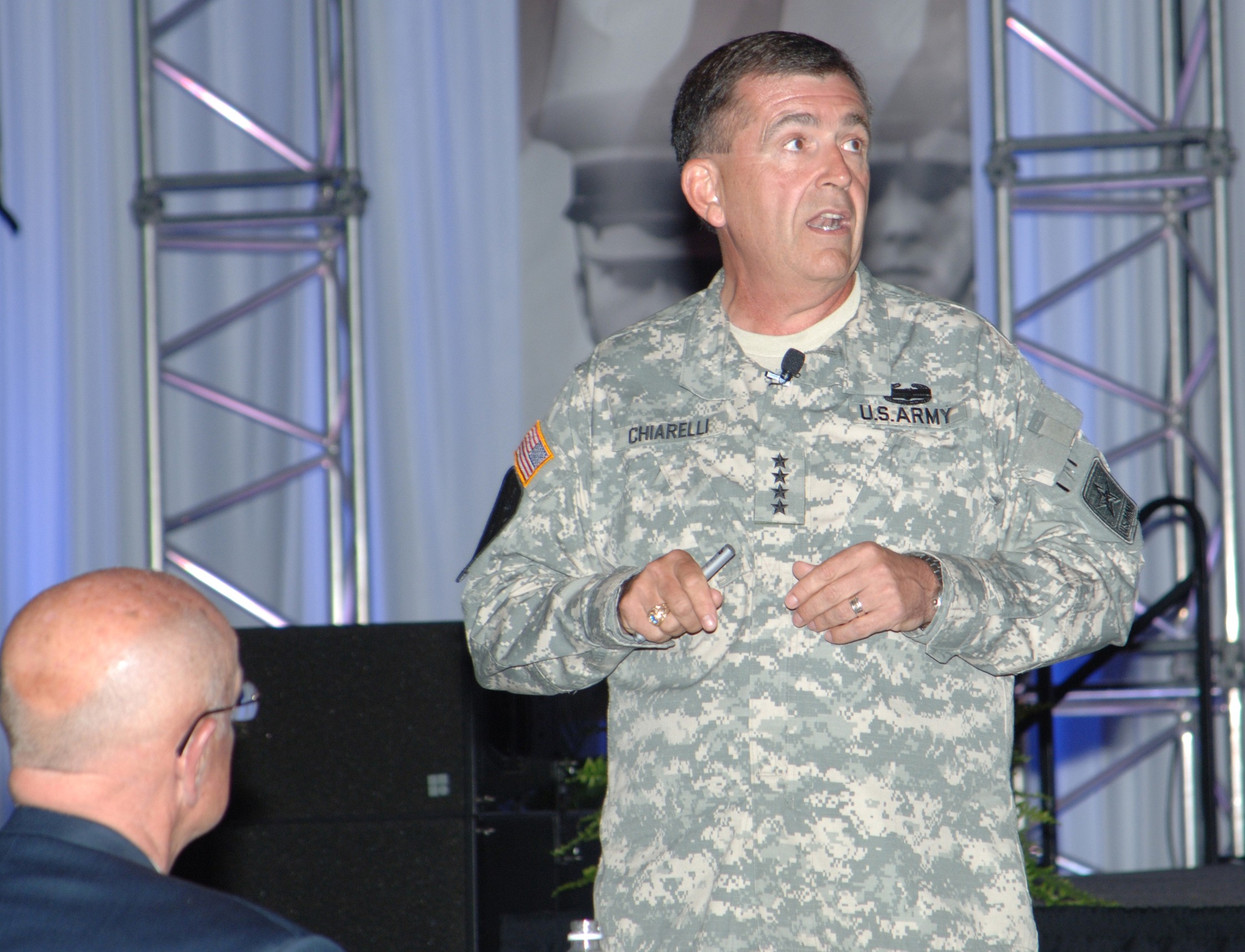SAN ANTONIO, Texas (Army News Service, July 24, 2009) -- Army Vice Chief of Staff Gen. Peter W. Chiarelli told more than 2,000 Army health-care professionals Tuesday that they must produce "mental wellness" through a multidisciplinary approach.
Chiarelli spoke at the annual Army Medical Symposium in San Antonio sponsored by the Association of the United States Army and U.S. Army Medical Command. He told the audience a spike in Soldier suicides during January and February was "appalling," and described his work organizing a task force to address the problem.
"I realized the problem is larger than suicide prevention. It's about mental wellness of Soldiers and their families," he said.
One key to mental wellness is the ability to spend adequate "dwell time" at home between deployments, he said.
"Dwell really matters. If you can keep a unit at home, they can get that knee operation done that they need to get done, they can get help for the musculoskeletal issues that they have, and have time to recover and not push themselves. It really matters," Chiarelli said.
He told of speaking to a training course for junior noncommissioned officers in which almost all the students had deployed to combat, many three or four times.
"That's stress. And, as much as it is stress on that individual Soldier, it is stress on the family," he said.
Chiarelli described changes in today's transformed Army, and said one of those changes is a tendency to maintain strength by keeping Soldiers in the Army rather than separating them because of drug, alcohol or similar issues.
"A lot of people have said to me, we don't need to boot people out, we need to get them help. I am in total, total agreement," he said.
He added that during a tour of six installations this spring to investigate Soldier suicides, he found "that is not necessarily what is happening in units today. We are not getting them help that they need, and that's what I find appalling."
Evidence indicates commanders sometimes do not report infractions in order to keep Soldiers deployable. As a result, those Soldiers do not get treatment, Chiarelli said.
The number of suicides by Soldiers now exceeds the rate in a demographically similar population of civilians.
"January and February was a [suicide] epidemic," Chiarelli said. "Through a lot of great work of folks here and the stand down that we conducted, I believe we have people started thinking about this problem and taking action. I've seen we have started to drive that number down. Knock on wood."
Chiarelli described a broad study of suicide the Army has commissioned from the National Institute of Mental Health, and a recent examination of a cluster of violent incidents at Fort Carson, Colo.
He said there are many programs to help commanders deal with behavioral-health problems, in fact, he added there probably are too many.
"The problem is there's a thousand flowers blooming, and unless you are a trained behavioral-health person you have no idea which one to pick," he said. "The NIMH study is going to help us in that area; we are going through those programs now and culling them out."
Chiarelli pointed out there are 32 organizations that play a role in suicide prevention, and he wants to reduce that to one organization.
"What we're trying to do in a short period is get this to where it makes sense to people working in the OPTEMPO of today," he said.
Chiarelli said the Army is doing well at assisting and treating patients, but needs to improve at assessment and education. He said the Comprehensive Soldier Fitness programs being developed by a team headed by Brig. Gen. Rhonda Cornum will help.
"This has the opportunity to revolutionize how we attack this problem," he said. "It is not just 140 Soldiers who committed suicide last year, it's all those others out there who will never commit suicide but who are suffering and need our help...this is the big idea."
The general also addressed a stigma associated with receiving behavioral-health care. He said the Army is experimenting with allowing Soldiers at some installations to self-refer for treatment without their commanders being informed. Another initiative is Web-based care.
"In the privacy of your home, you have the ability to go online and talk to a psychiatrist, psychologist or mental-health care folks. This is being done in Australia with great success. What they are finding is people who have access like this are much more willing to talk about what their problems are," Chiarelli said.
He said Tri-West, the TRICARE contractor for the Western Region, will begin such a program in August.
Chiarelli concluded by emphasizing five points: The force is stressed. Army Force Generation has effects on Soldiers and families. Mental wellness is key. It requires a multidisciplinary approach.
(Jerry Harben serves with the U.S. Army Medical Command.)


Social Sharing